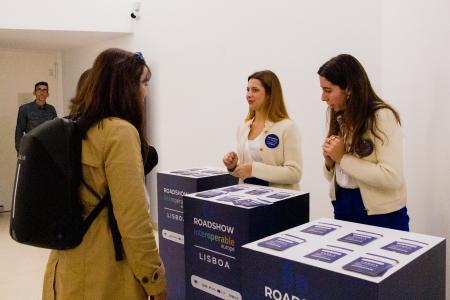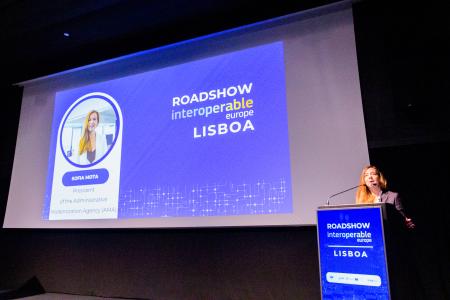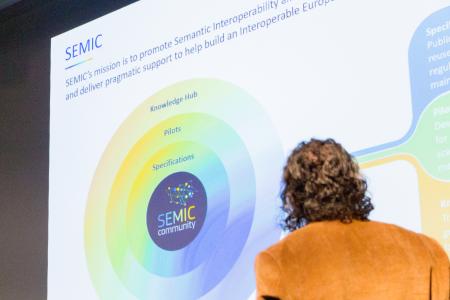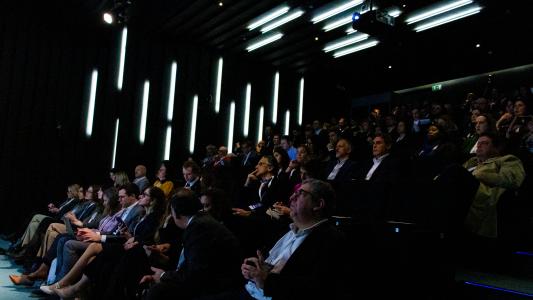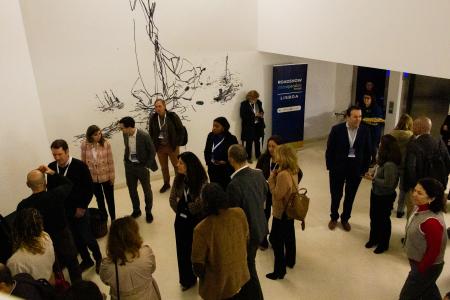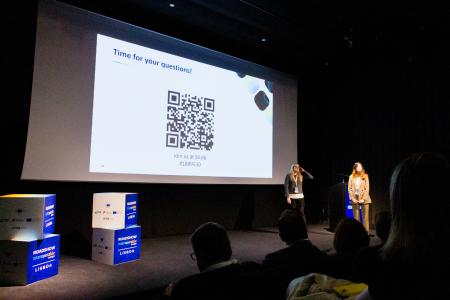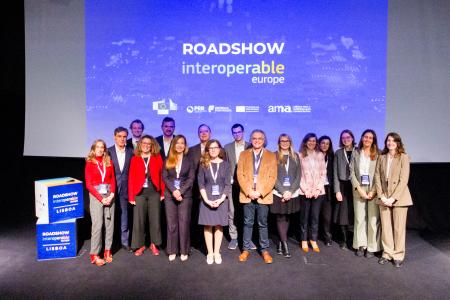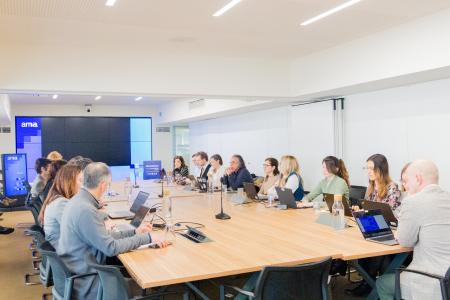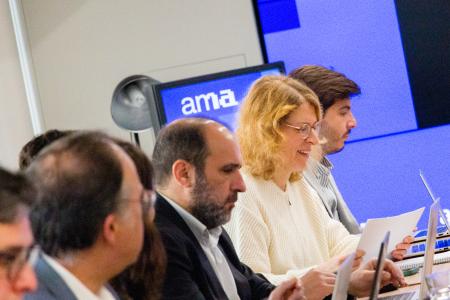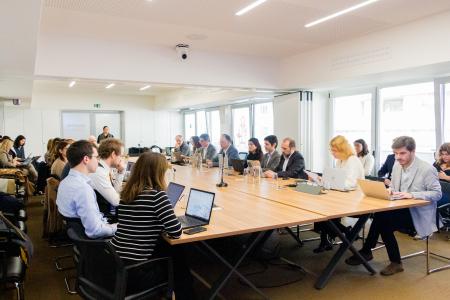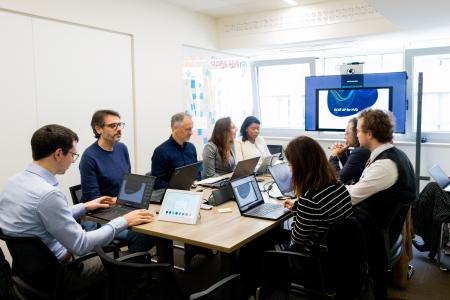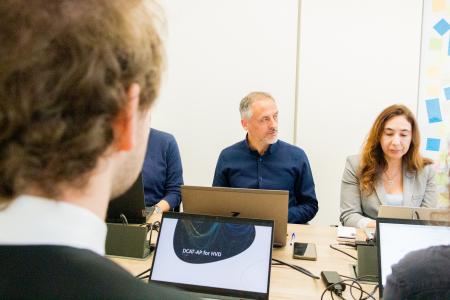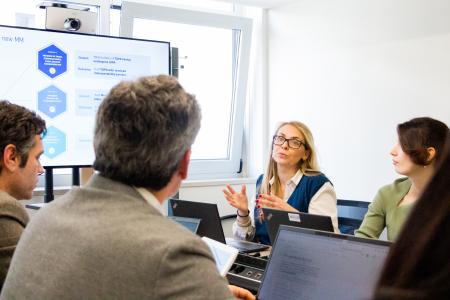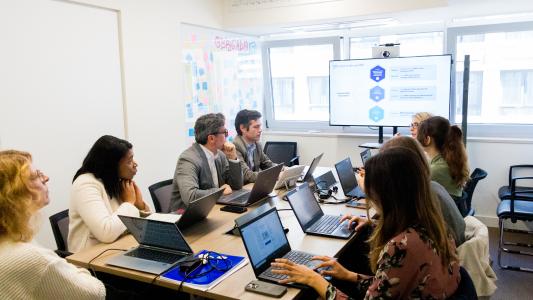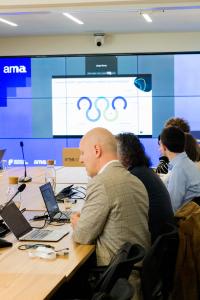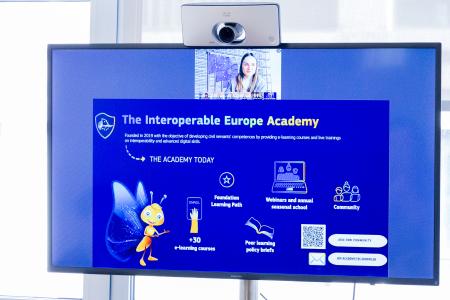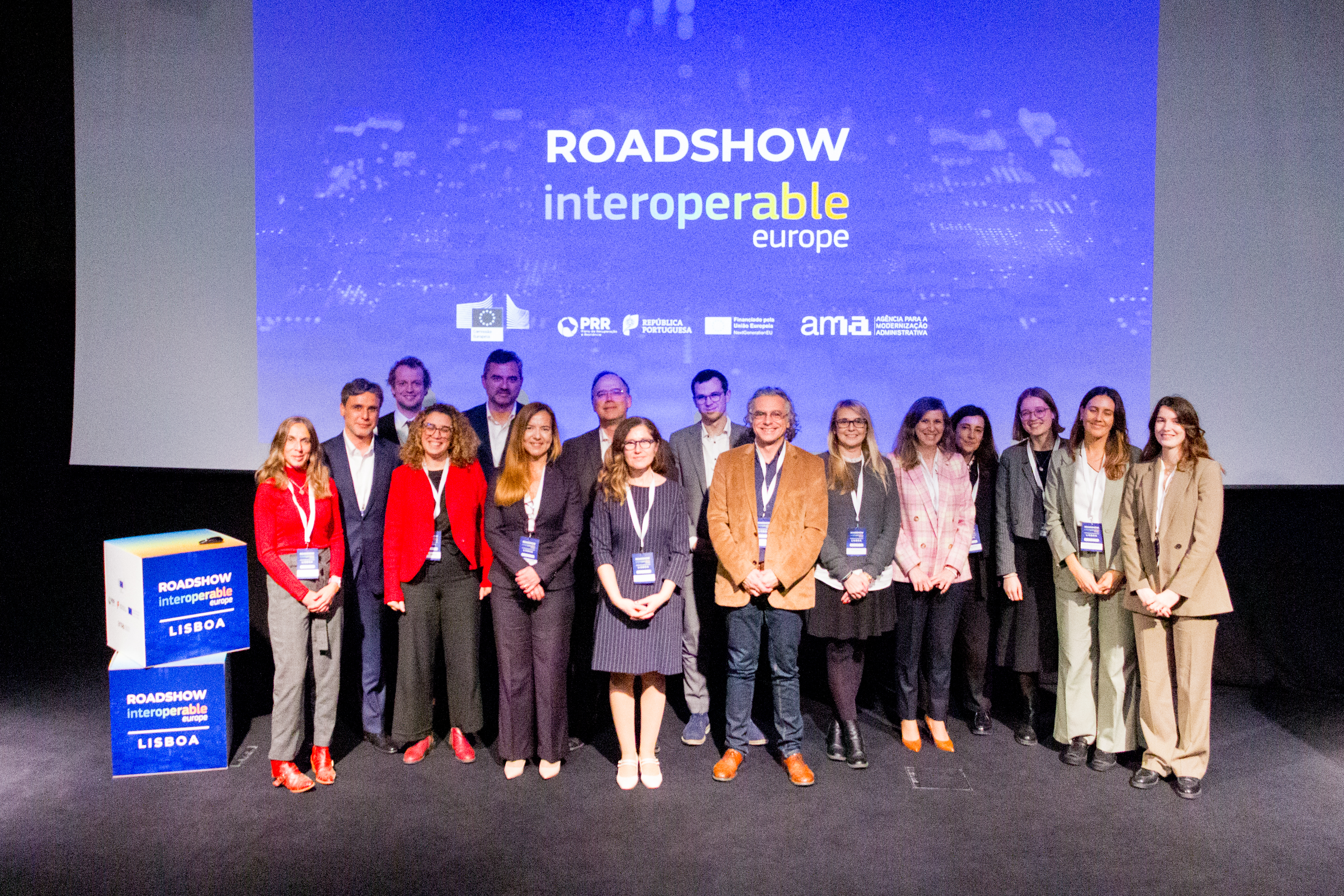
Interoperable Europe Roadshow in Portugal
The Interoperable Europe Roadshow in Portugal, organised on February 18-19, 2025, marked an important step in engaging public authorities with the Interoperable Europe Act. This event, organised by the European Commission and the Agency for Administrative Modernization (AMA) in Portugal, focused on the new Interoperability Monitoring Mechanism, interoperability assessments, semantic interoperability and Portugal’s interoperability success stories.
The first day, held in a plenary format, provided a broad audience with an opportunity to explore key novelties and policy advancements towards achieving interoperable digital public services. On the second day, several workshops took place, bringing together experts and representatives to discuss various specific topics.
Event Highlights:
DAY 1
-
Introduction and Keynote Addresses: The event opened with a plenary session opened by Sofia Mota, President of the AMA and Leontina Sandu, Head of the Interoperability and Digital Government Unit at the European Commission’s Directorate-General for Digital Services (DG DIGIT – B2), who emphasised the importance of cooperation in delivering interoperable digital public services and supporting the digitalisation of public administrations in Europe. They emphasised the objective of the Interoperable Europe Roadshows to raise awareness on interoperability and digital government and highlighted Portugal's role in implementing the Interoperable Europe Act.
-
Presentations on EU Digital Regulations: Claudia Oliveira, Programme Manager DG DIGIT B2, provided insights into the EU digital regulations landscape, including the Open Data Directive and AI Act. The session detailed the novelties introduced by the Interoperable Europe Act, such as mandatory interoperability assessments and innovation measures.
-
SEMIC Action Overview: Georges Lobo, Programme Manager DG DIGIT B2, and Catarina Arnaut, Project Manager SEMIC, introduced the SEMIC action, which aims to enhance semantic interoperability among EU Member States. SEMIC offers specifications such as DCAT-AP and CPSV-AP, implements or supports pilot projects, develops tools for semantic interoperability, and maintains a knowledge hub to store various types of resources such as studies, webinars and trainings.
- Interoperable Europe Monitoring and Interoperability Assessments
The session delved into how the adoption of the Act impacted Member States and, more specifically, the mandatory interoperability assessments and the creation of a new monitoring mechanism to monitor the Act’s implementation. The Interoperability Monitoring Mechanism (MM), developed by DG DIGIT and the Joint Research Center (JRC), was introduced and compared to the former European Interoperability Framework (EIF) monitoring mechanism. Additionally, the interoperability assessments, as mandated by Article 3 of the Act, will ensure that interoperability is considered early in the policymaking process, supporting the identification of cross-border barriers and facilitating the creation of seamless digital public services across the EU.
- Portugal’s success stories:
During the afternoon, Portugal presented success stories in interoperability and digital transformation:
-
AMA highlighted Portugal’s approach to strengthening interoperability through the single national interoperability portal.
-
The Directorate-General of Economic Activities (DGEA) presented the digital transformation of the stallholder license process, eliminating the need for in-person visits to multiple institutions.
-
The Portuguese Institute for Registries and Notaries (IRN) shared advancements in the interoperability of national registries, covering citizen, company, land, and vehicle data.
-
The Directorate-General for Higher Education (DGES) introduced their initiative for awarding grants to higher education students.
DAY 2
-
Breakout Sessions: The second day featured targeted discussions on topics like DCAT-AP for High Value Datasets, the interconnection between interoperability assessments and the new interoperability monitoring mechanism, as well as the Interoperable Europe Academy and its digital training initiatives. During these sessions, training needs and potential follow-up actions were identified, emphasising the importance of knowledge sharing.
-
Concluding Remarks and Future Initiatives: The Roadshow concluded with remarks from Leontina Sandu and Sofia Mota, highlighting the participation of Portugal in the InvestEU Programme and the significance of the Multiannual Financial Framework in advancing cross-border interoperability. The event laid the groundwork for future initiatives, fostering synergies and collaboration opportunities.
Conclusion:
The Interoperable Europe Roadshow in Portugal successfully engaged public administrations, technical experts and private actors, setting the stage for future interoperability opportunities. By focusing on collaboration and knowledge sharing, the event underscored the potential of the Act and semantic technologies to enhance digital public services across Europe.
You can find attached the full report of the Interoperable Europe Roadshow.
© Photo credentials: Maria Silva, AMA


